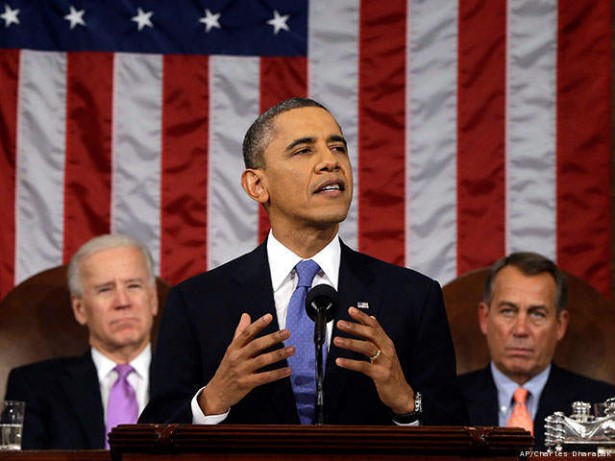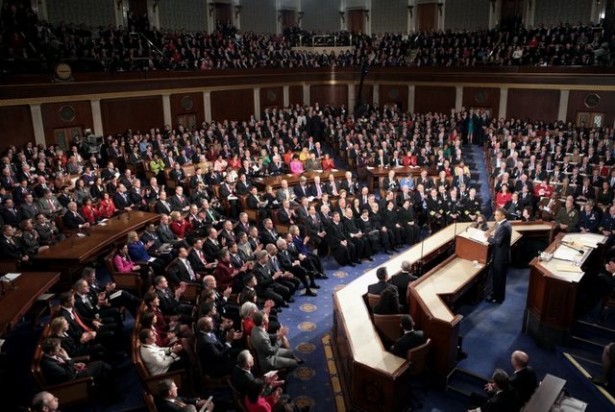
I love politics almost as much as I love technology but I’d be naive if I said either were perfect. If you watched last year’s presidential debates, or have seen the disturbing amount of cat videos on YouTube, you know exactly what I’m talking about. However, both play a crucial role in our society and in the right hands, they have the power to change the world we live in.
Last night’s State of the Union address was historic. In addition to it being the first of President Obama’s final term, it was the subject of several interactive online viewing experiences – many of which were the first of their kind.
Bing.com partnered with Fox News to bring real-time reactions of the President’s hour-long speech to the nation. With nearly 13 million votes, it’s being called the largest online poll in history. According to Bing’s analysis of trending topics in social media, Obama’s remarks on Afghanistan, climate change, and education ranked highly positive among viewers. His views on tax reform and immigration left viewers split near the middle, or all together neutral.
The White House also hosted their own enhanced online viewing experience. Inside the live broadcast of the address they included a rolling slide show of the President’s speech. The slide show included statistics to support the President’s remarks on various topics, as well as bios of the citizens that Obama invited to the address and spoke highly of. One these select American’s was Desiline Victor, a 102 year-old woman who waited in line for six hours to cast her vote last November.

In addition to the enhanced viewing, the White House also live-tweeted the speech, turning my Twitter feed into a jumbled mix of ESPN alerts and quotes from the President (with the occasional Levar Burton tweet thrown in for good measure) but you don’t have to take my word for it. CNN also got in on the action, asking viewers to condense the 6,000 word speech into 140 characters finished off with the hashtag #tweetoftheunion. Thousands tweeted their summaries of the speech including several Congressmen and women.
Real-time, interactive technology is creating an important conversation on democracy, not only in the U.S. but around the world, and it will continue to be a focus point on important events as they happen, playing an increasingly important role in the decisions we make as a nation. Fittingly, the President finished his address with a challenge to both sides of the aisle and each American to work together to create the next great chapter in our American story.
We are citizens. It’s a word that doesn’t just describe our nationality or legal status. It describes the way we’re made. It describes what we believe. It captures the enduring idea that this country only works when we accept certain obligations to one another and to future generations; that our rights are wrapped up in the rights of others; and that well into our third century as a nation, it remains the task of us all, as citizens of these United States, to be the authors of the next great chapter in our American story.
(Photo credits: AP, Washington Times)
Think people should hear about this?